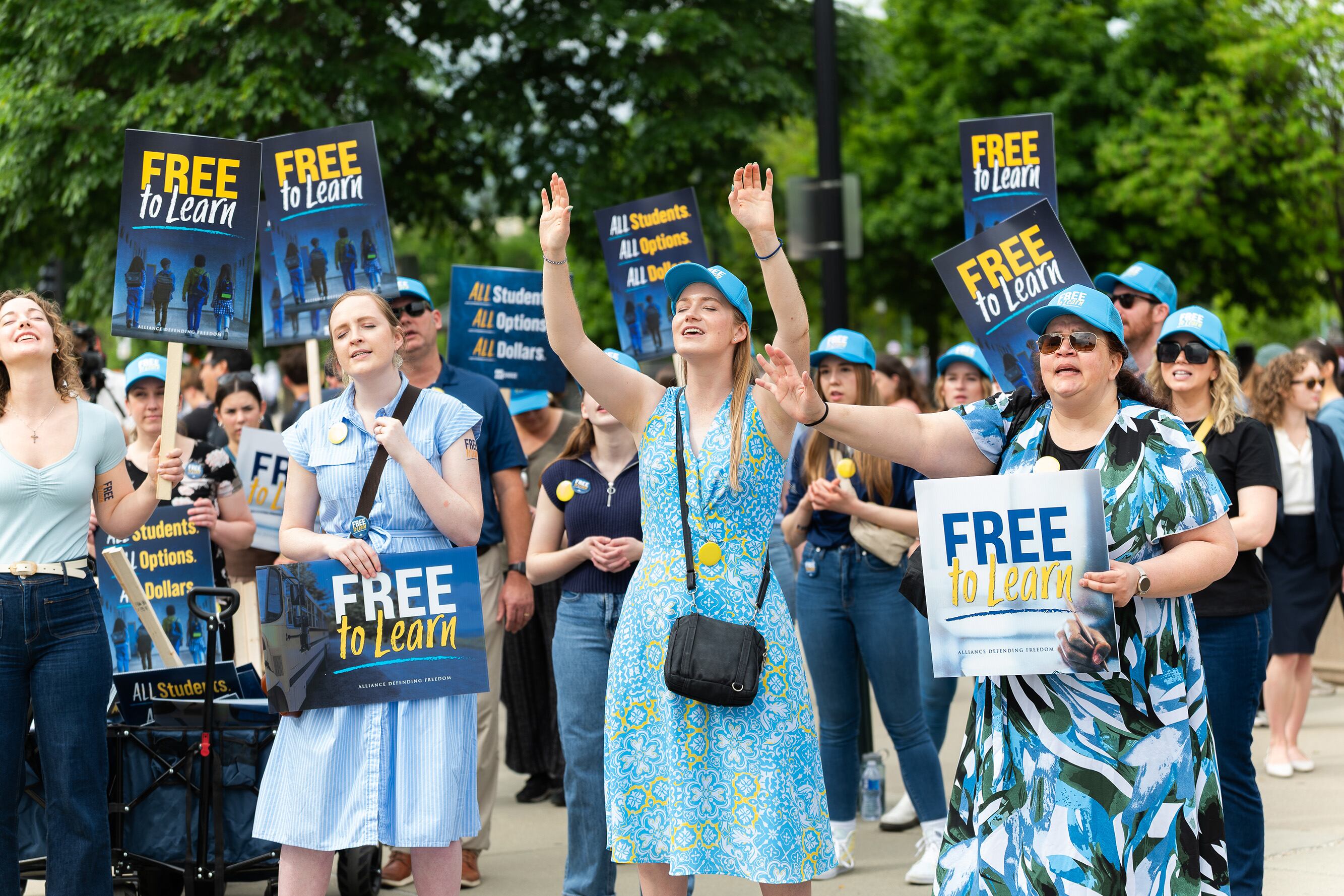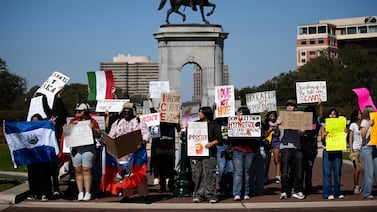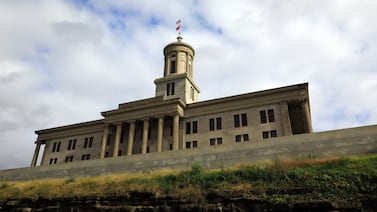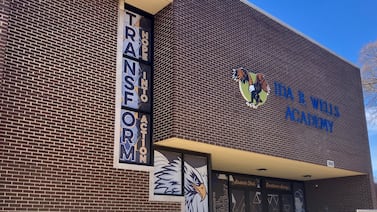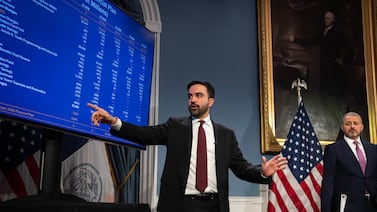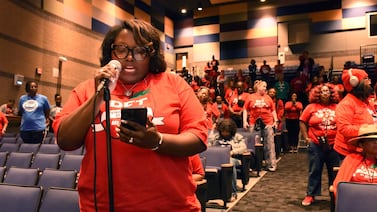Sign up for Chalkbeat’s free weekly newsletter to keep up with how education is changing across the U.S.
Religious charter schools will continue to be illegal after the U.S. Supreme Court tied 4-4 in a case that many observers considered one of the most consequential education cases in decades.
The deadlock means an Oklahoma Supreme Court decision that blocked the opening of St. Isidore of Seville Catholic Virtual School stands. It also means that the thorny issues about church and state and about what constitutes a public school remain undecided by the high court.
Many charter school advocates cheered the outcome. They had feared a ruling in favor of the proposed religious charter school would upend charter laws in dozens of states and potentially lead to new restrictions on the sector.
Supporters of St. Isidore had argued that charter schools, which are publicly funded but independently run, are more like private entities that contract with the government. Not allowing for explicitly religious charter schools would amount to religious discrimination, they said.
But charter sector advocates have long held that they are public schools, and state laws describe them as such. The lack of a decision leaves the status quo unchanged.
“Today’s decision from the Supreme Court leaves the lower Court’s ruling in place and sends an important message: public charter schools are just that, public,” Starlee Coleman, president and CEO of the National Alliance for Public Charter Schools, said in a statement. “This case may not be the last time the Court takes up the question of religious charter schools, but today’s outcome offers clarity for families and educators.”
The Supreme Court decision provided no arguments on either side and did not say which justices took which side. During oral arguments last month, the Supreme Court’s conservative majority seemed receptive to the idea of religious charter schools and uncertain that charter schools constitute “state actors” in a legal sense. But of the conservative justices, Chief Justice John Roberts seemed the most skeptical.
Justice Amy Coney Barrett recused herself from the case, setting the stage for the tie decision. She is close personal friends with Notre Dame law professor Nicole Stelle Garnett, who advised St. Isidore and authored an influential brief in favor of religious charter schools.
“Public schools remain public. That’s the headline,” said University of South Carolina law professor Derek Black. “This threatened to be the most consequential school case since Brown v. Board. We can breathe a sigh of relief and see if another case comes up.”
The St. Isidore case was the most recent in a string of Supreme Court cases that eroded the traditional line between church and state. In Carson v. Makin in 2022, the court ruled that states that have private school choice programs can’t exclude religious schools from participating. That case set the stage to consider religious charter schools.
While charter school supporters have always described them as part of the public school system, critics have charged that they represent a stepping stone toward privatization. Different lower court decisions have treated charter schools as more like private or more like public schools for matters of employment, student discipline, and open meetings laws.
Supporters of charter schools feared that a ruling that these schools were closer to private entities, and thus could be religious, would give fodder to critics and lead to intense backlash in blue states where charters have traditionally enjoyed broad support.
Some supporters of religious education believe charter status would inevitably erode the independence and faith-based character of religious schools. But others say parents who want this education for their children should have the same access to taxpayer-funded schools that public school families enjoy.
The prospect of public funding remains appealing for some religious schools, especially those serving low-income families or struggling with enrollment. A new school proposal could emerge to put the issue back in front of the Supreme Court.
“This case raised some novel issues involving the First Amendment’s religion clauses and could be resolved in several different ways,” said Thomas Jipping, a senior legal fellow at the conservative Heritage Foundation, in a statement. “With no majority and no separate opinions, we can’t know how the Justices wrestled with these different options. The issues raised here will likely return to the Court, perhaps in a case better suited for resolution.”
Erica Meltzer is Chalkbeat’s national editor based in Colorado. Contact Erica at emeltzer@chalkbeat.org.

